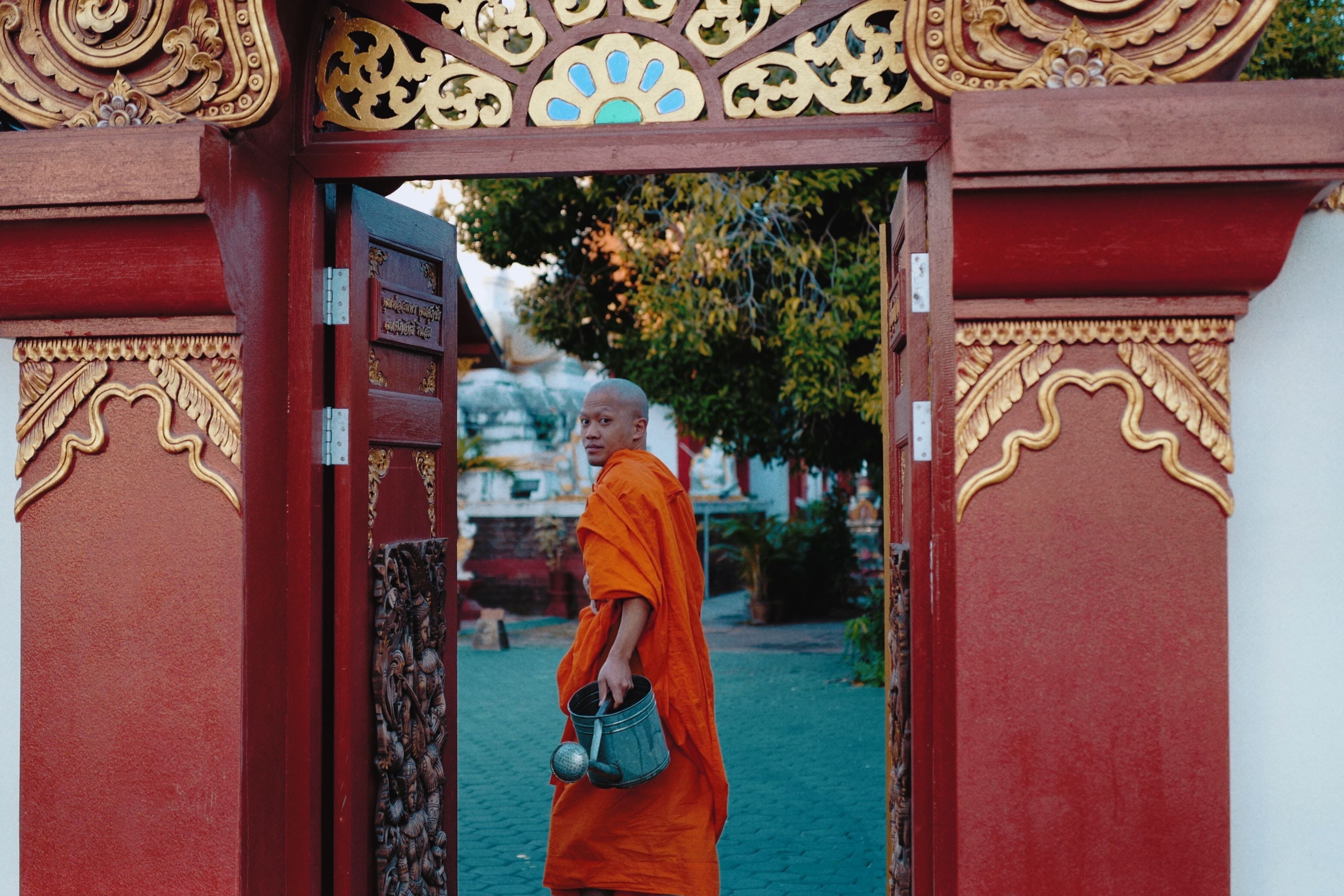monk
This is your last free story this month.
How a Buddhist Monk Taught Me to Stop Overthinking
It all comes down to a simple two-word question


For as long as I can remember, I’ve been creating scenarios in my head, juggling between the past and the future. Trust me when I say it’s easy to lose yourself in a story for a good few minutes. Just grab your headphones and play a dramatic song that fits the screenplay. It almost feels real, doesn’t it?
The best thing about it is that you can do it anywhere. You don’t have to lay in bed or a hammock. No, no, no. If you are an experienced player, you can easily zone out in the middle of a conversation.
Does it sound familiar? I’m sure it does. But how do we put an end to it?
They say practicing meditation is the secret to a clear mind. And it is, to some extent. I’ve been doing it regularly for one and a half years and boy, oh boy, did it make a huge difference. However, until recently I was still finding myself overthinking. I’m a veteran after all.
My left foot was on a wooden boat, full of people who create scenarios in their heads. The right one was on a yacht where people manage to stay in the present moment. Van Damme and his epic split have nothing on me.
I should probably work more on my metaphors, though.
Back to our story, how about some good news too? You can use a simple hack to say goodbye to overthinking. Here’s how to do it.
How to Stop Overthinking According to a Hilarious Buddhist Monk
The trick that I use to bring myself in the present moment is a two-word question. I’ve read it in The Art of Disappearing: Buddha’s Path to Lasting Joy, a book published by a Buddhist monk.
He is known as Phra Visuddhisamvarathera, Ajahn Brahmavaṃso, or simply Ajahn Brahm. We’ll stick with the shorter version, for everybody’s sanity.
When talking about overthinking, he says he used to do it a lot too. It was mostly about falling in love and starting a family.
Before he was a monk, of course. Now he’s probably flying on a magic carpet.
But let’s see what his method is, shall we?
Ajahn Brahm says that whenever he was engaging in imaginative conversations, he would ask himself “then what?” and repeat the question for as long as he needed to.
“When I was young I too used to have fantasies. I learned to stop them from grabbing hold of me by following them to their logical conclusion. I would think, “Then what? Then what?” and I wouldn’t stop until I had the full picture.”
Now let’s say you start thinking about how people will react to a new project you are working on. Ask yourself “then what?”. Maybe you’ll continue the story and come up with how you are going to respond to their critiques, or thank them for their praise.
Ask yourself again what comes next. In just a few seconds, you’ll lose interest in your own story.
In his book, Ajahn Brahm explains how this method helped him and why it works:
“With fantasies such as falling in love, getting married, and riding off into the sunset, the “then what” took all the fun out of it, because the “then what” was just empty. There was no color, brightness, joy, or happiness anymore because the “then what” would be whatever everyone else experiences.”
So next time you feel like creating scenarios in your head, keep asking yourself “then what” until you realize you have better things to do. Or until you get really, really annoyed.
Either way, it works. You stop playing stories in your head in which you fight with people from your past or fantasize about happy endings you might never get.
After a while, the number of times you have to ask the question will decrease, and eventually, you’ll stop overthinking for good.
Who Is Ajahn Brahm?
I discovered this incredibly funny Buddhist monk in Myanmar, at a meditation center where I volunteered for two weeks. The nuns living there introduced me to his books and discourses and I was immediately hooked.
Mainly because he has a really good sense of humor. Even though he’s talking about deep, spiritual things, he does it in a laid-back way.
He’s a big supporter of same-sex marriages and often stresses that Buddhist teachings do not discriminate based on sexual orientation. Talk about a cool monk, eh?
Born in England as Peter Betts, he ordained in Thailand, at the age of 23. Today, he is the Abbot of Bodhinyana Monastery, in Serpentine, Western Australia.
If you are interested in his teachings, you can find his discourses on Youtube. You can also read his books or listen to the Buddhist Society of Western Australia podcast.
Yep, podcast, you read that right. I told you this Buddhist monk takes things to the next level.
Final Thoughts
We are all guilty of overthinking. But simply because it’s a common thing doesn’t mean it’s a good one too. It can only harm us and affect our relationships. No matter how you look at it, there is no positive outcome.
We can’t stop overthinking in just a few days, especially if it’s a behavioral pattern that we’ve been feeding for years.
Instead of trying to get rid of this bad habit overnight, start measuring your success by keeping track of the time you spend overthinking.
Let’s say you are doing it for two hours every day. If you manage to get it down to half an hour after a month of using this method, you are making tremendous progress.
And you’ll soon get both feet on the yacht.
Comments
Post a Comment